How far can states go in regulating guns in the aftermath of Uvalde?
The legal landscape surrounding state and national efforts to restrict firearms in the United States may soon be shifting following another high-profile mass shooting.

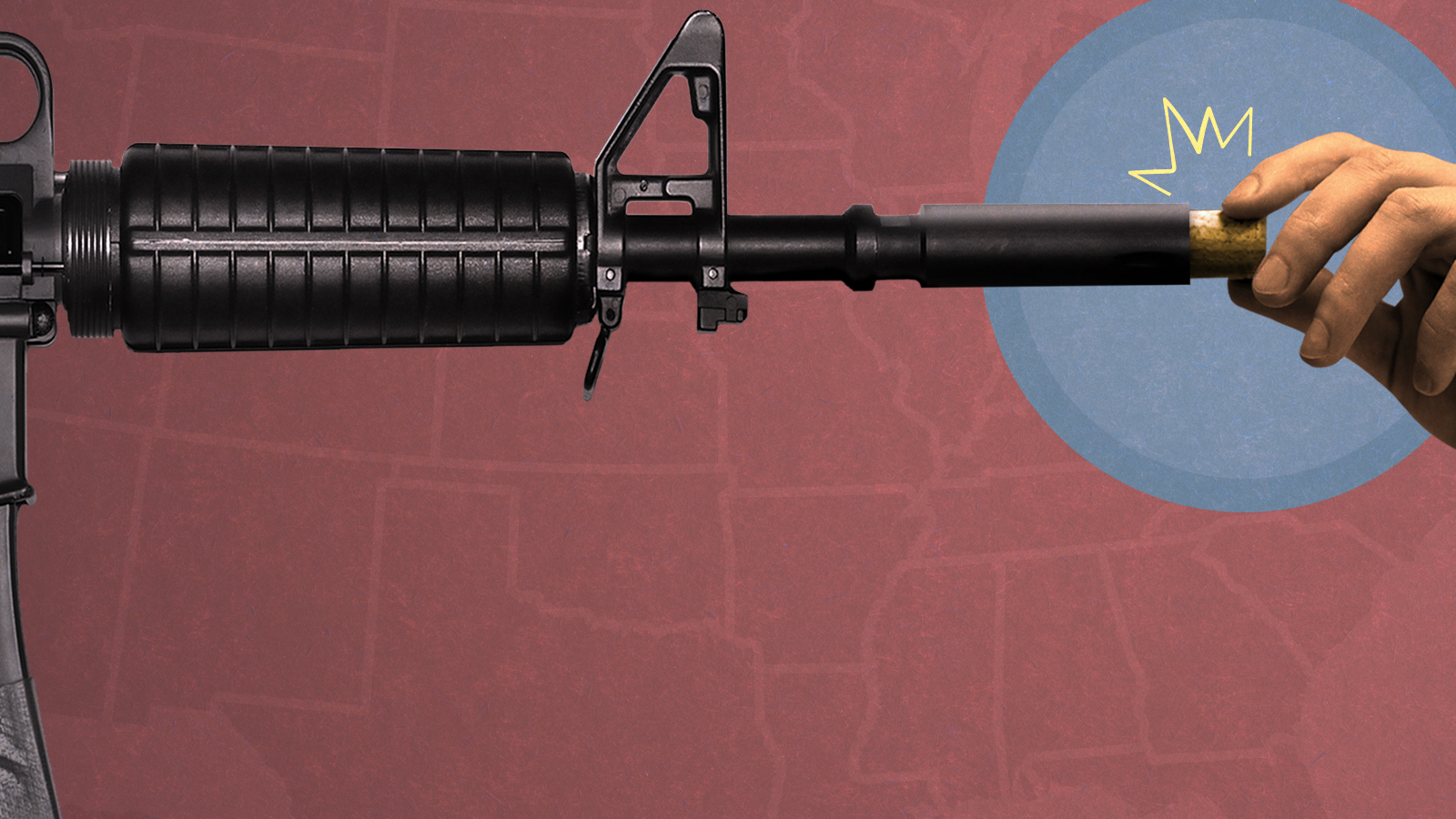
A free daily email with the biggest news stories of the day – and the best features from TheWeek.com
You are now subscribed
Your newsletter sign-up was successful
The gruesome and shocking murder of 19 elementary school students and two teachers in Uvalde, Texas last week has renewed a seemingly neverending debate about gun laws in the United States, and lawmakers and legal experts are again focusing on what can, and cannot, be changed. Here's everything you need to know:
With yet another effort to cobble together 60 votes to override the filibuster in the Senate underway, both national and state leaders are thinking about how they can pursue reform in the legal context created by the Supreme Court's 2008 decision in District of Columbia v. Heller, and the subsequent 2010 case McDonald v. Chicago, which held that the individual right to bear arms applies to all 50 states plus D.C. This process is known as "selective incorporation" and uses provisions of the 14th Amendment to apply the Bill of Rights to the states. Since then, it has never been entirely clear what kinds of new restrictions states or the federal government could place on firearms, an ambiguity that is likely to be resolved soon one way or another in the courts.
What reforms are being proposed in the Senate?
As in the aftermath of the similarly unthinkable 2012 killings at Sandy Hook Elementary School in Newtown, Connecticut, the Uvalde massacre has prompted the seemingly inert Senate into negotiations over the shape of potential reforms. A bipartisan and eclectic group of 8 Senators working on details includes the usual moderate suspects like Joe Manchin (D-W.Va.) and Susan Collins (R-Maine) but also passionate advocates for action like Chris Murphy (D-Conn.). The agenda is relatively tame – an expansion of background check policies for those seeking to purchase firearms, as well as ways to prod states to adopt "red flag laws" like those on the books in California and New York that can authorize the seizure of guns from those deemed to be a danger to themselves or others. More sweeping legislation sought by many Democrats to ban "assault weapons" (itself a hotly disputed term) like the AR-15 used in so many mass shootings over the past two decades, does not appear to be on the table, even though such a ban existed from 1994 to 2004. The Senate's likely proposals, should they pass, seem unlikely to run afoul of existing constitutional jurisprudence, although they would likely be challenged in court.
The Week
Escape your echo chamber. Get the facts behind the news, plus analysis from multiple perspectives.

Sign up for The Week's Free Newsletters
From our morning news briefing to a weekly Good News Newsletter, get the best of The Week delivered directly to your inbox.
From our morning news briefing to a weekly Good News Newsletter, get the best of The Week delivered directly to your inbox.
How far can states go in regulating guns?
The more consequential action on gun regulations might happen in Democratic-controlled states where legislators and governors have the votes to pursue more aggressive interventions. Heller has often been described as preventing states from implementing stricter gun laws, but Kate Shaw and John Bash, who were Supreme Court clerks during the Heller decision, argued otherwise in The New York Times. But at least for the time being (more on that below), states can and have enacted quite different laws regulating the possession of guns, with advocacy groups issuing dueling scorecards and grades. In California, for example, Large Capacity Magazines are illegal, as is the sale of semi-automatic rifles to individuals under the age of 21, although the latter provision was just struck down by the 9th Circuit Court of Appeals.
Data suggest that more restrictive gun laws are associated with lower rates of violence and mass shootings. The Public Policy Institution of California claims that the state's residents are 25 percent less likely to die in a mass shooting compared with other states, and Golden Staters have one of the lowest rates of firearm mortality in the country. The NRA claims that gun violence has dropped dramatically overall since 1991 despite a loosening of regulations, but differences in state outcomes during the same time period make it clear that laxer laws and higher levels of gun ownership are associated with more violence even if crime in the aggregate is down significantly from a generation ago. Moreover, there is broad public support for policies like limiting firearm capacity (supported by 64 percent of respondents in a 2021 Pew survey) and scant appetite for loosening gun laws, a stance backed by just 11 percent of Americans in Gallup's long-running poll.
Despite broad public backing, those and other provisions in California and other liberal states are tied up in legal battles that are likely to end up before a Supreme Court which now has a 6-3 conservative majority.
How will the Supreme Court rule on these issues?
Shaw and Bash argue that the majority opinion in Heller merely prohibited a ban on ownership of handguns and endorsed "some measures regulating handguns." If true, that would open the door for many states to more tightly regulate not just assault weapons but also other types of firearms. However, there are two potential problems with their argument. One is that the Supreme Court of today is vastly different than the one that existed in 2008. Then, conservatives had a 5-4 majority that included Anthony Kennedy, who was more moderate on certain social issues than the man who replaced him in 2018, Brett Kavanaugh. The court's composition was further changed with the appointment of Amy Coney Barrett to replace liberal icon Ruth Bader Ginsburg, who died in September 2020. It is unlikely that today's Supreme Court would endorse some of the caveats in Heller, and indeed, appears by all accounts to be on the verge of ruling, in New York State Rifle & Pistol Association v. Bruen, to allow Americans to carry concealed firearms everywhere, voiding laws like those in New York that heavily restrict who may carry a concealed weapon in public. That decision is expected soon.
A free daily email with the biggest news stories of the day – and the best features from TheWeek.com
For the Supreme Court to expand gun rights in the aftermath of Uvalde might be just as incendiary as the draft opinion leaked in May overturning the landmark Roe v. Wade decision guaranteeing a constitutional right to abortion. From there it could be open season on any state-level firearms restrictions, including prohibitions against openly carrying a weapon in public. Such a confrontation between public opinion and conservative jurisprudence could make guns a top-tier issue in this November's elections and possibly lead blue state leaders like California Gov. Gavin Newsom (D) to openly defy SCOTUS rulings on guns.
David Faris is a professor of political science at Roosevelt University and the author of "It's Time to Fight Dirty: How Democrats Can Build a Lasting Majority in American Politics." He's a frequent contributor to Newsweek and Slate, and his work has appeared in The Washington Post, The New Republic and The Nation, among others.
-
 How the FCC’s ‘equal time’ rule works
How the FCC’s ‘equal time’ rule worksIn the Spotlight The law is at the heart of the Colbert-CBS conflict
-
 What is the endgame in the DHS shutdown?
What is the endgame in the DHS shutdown?Today’s Big Question Democrats want to rein in ICE’s immigration crackdown
-
 ‘Poor time management isn’t just an inconvenience’
‘Poor time management isn’t just an inconvenience’Instant Opinion Opinion, comment and editorials of the day
-
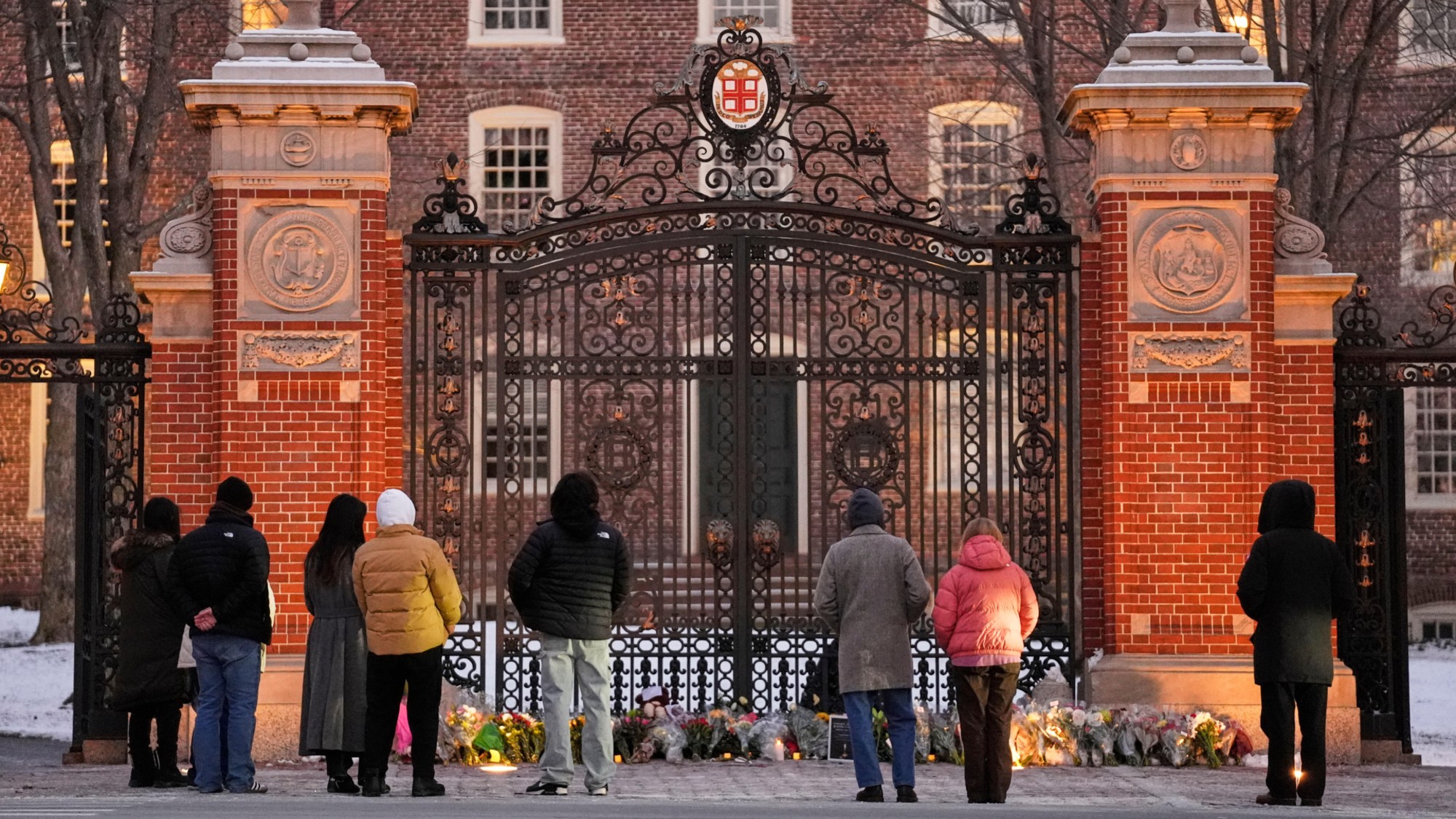 Campus security is under scrutiny again after the Brown shooting
Campus security is under scrutiny again after the Brown shootingTalking Points Questions surround a federal law called the Clery Act
-
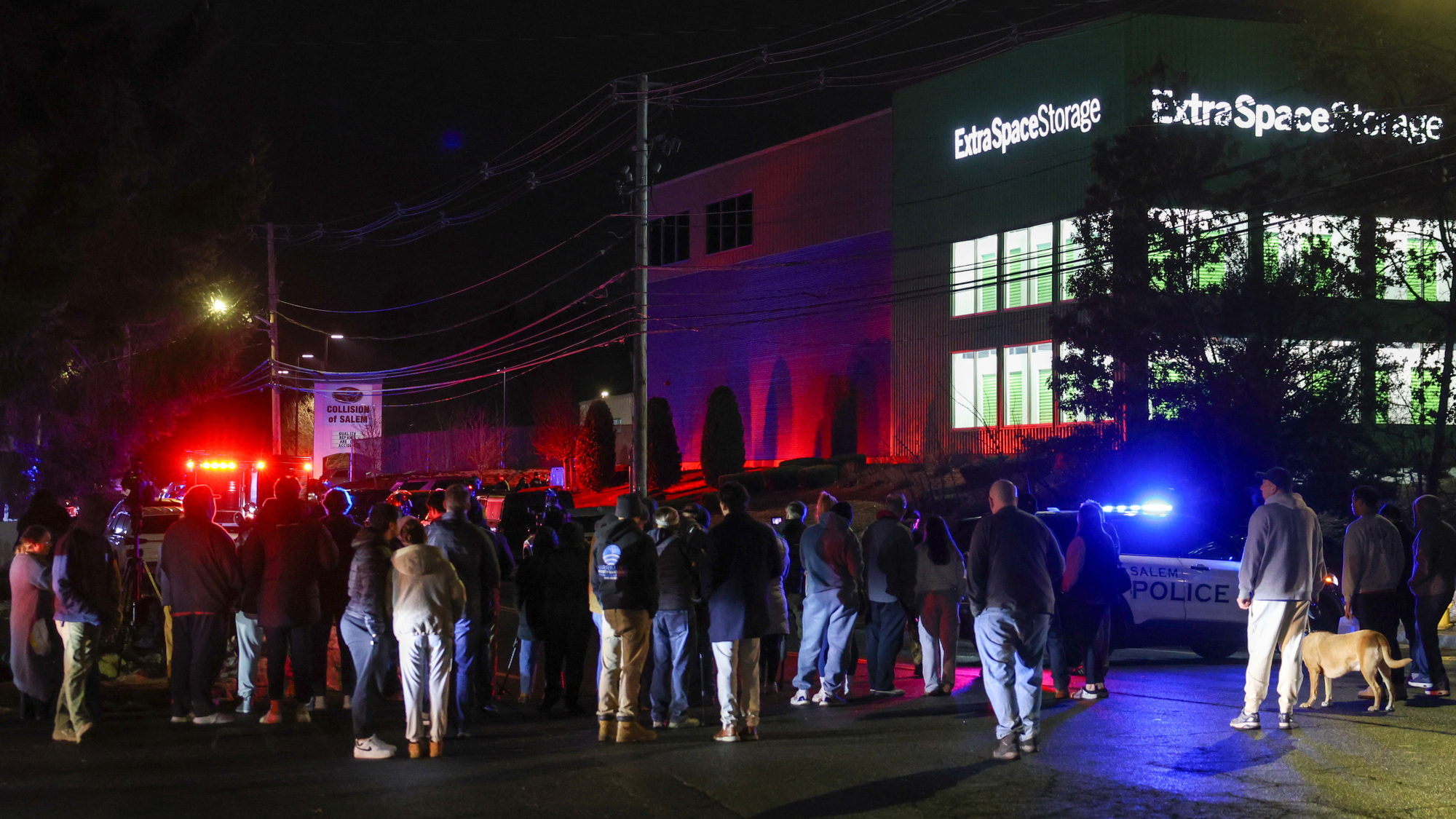 Sole suspect in Brown, MIT shootings found dead
Sole suspect in Brown, MIT shootings found deadSpeed Read The mass shooting suspect, a former Brown grad student, died of self-inflicted gunshot wounds
-
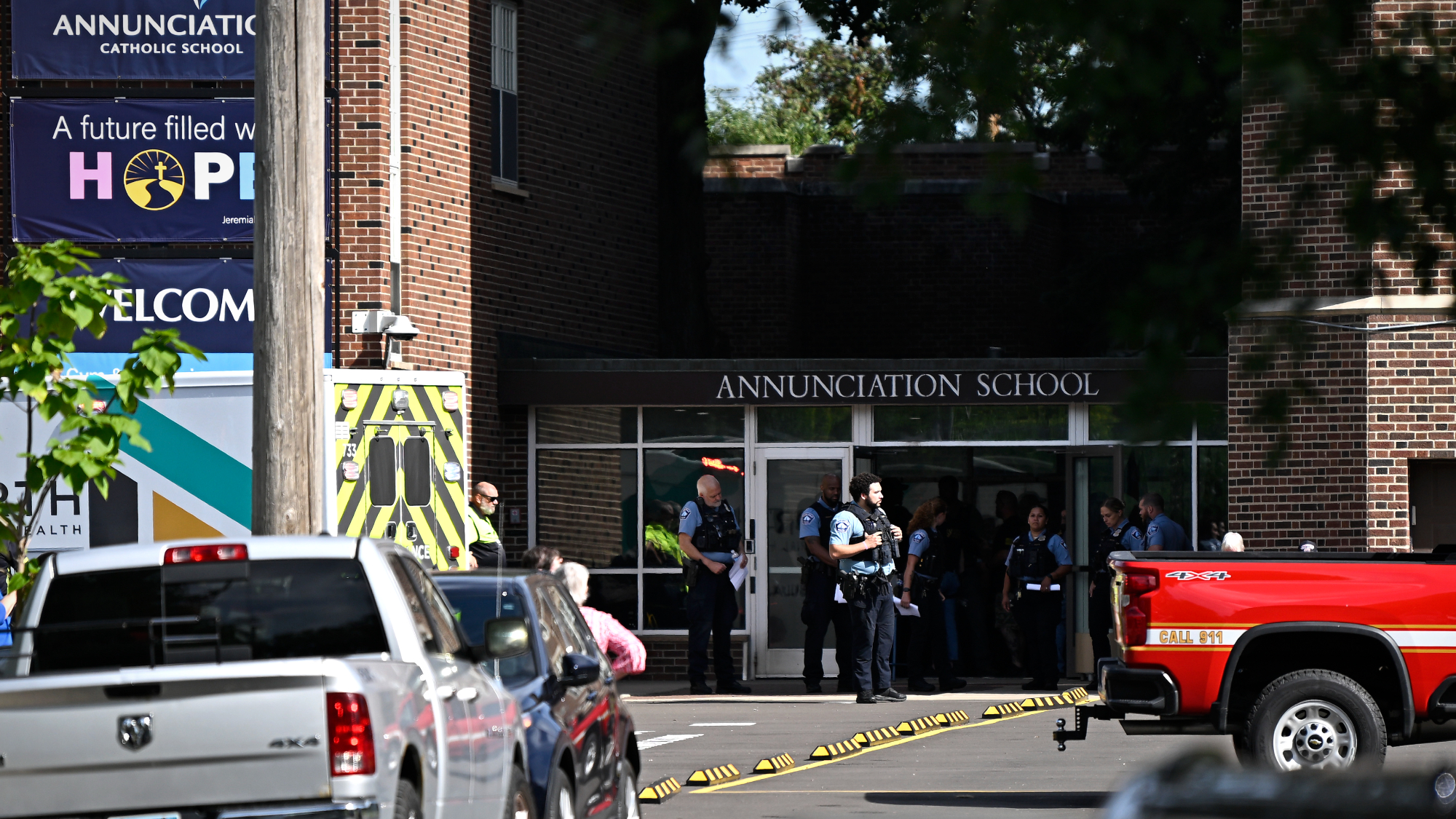 2 kids killed in shooting at Catholic school mass
2 kids killed in shooting at Catholic school massSpeed Read 17 others were wounded during a morning mass at the Annunciation Catholic School in Minneapolis
-
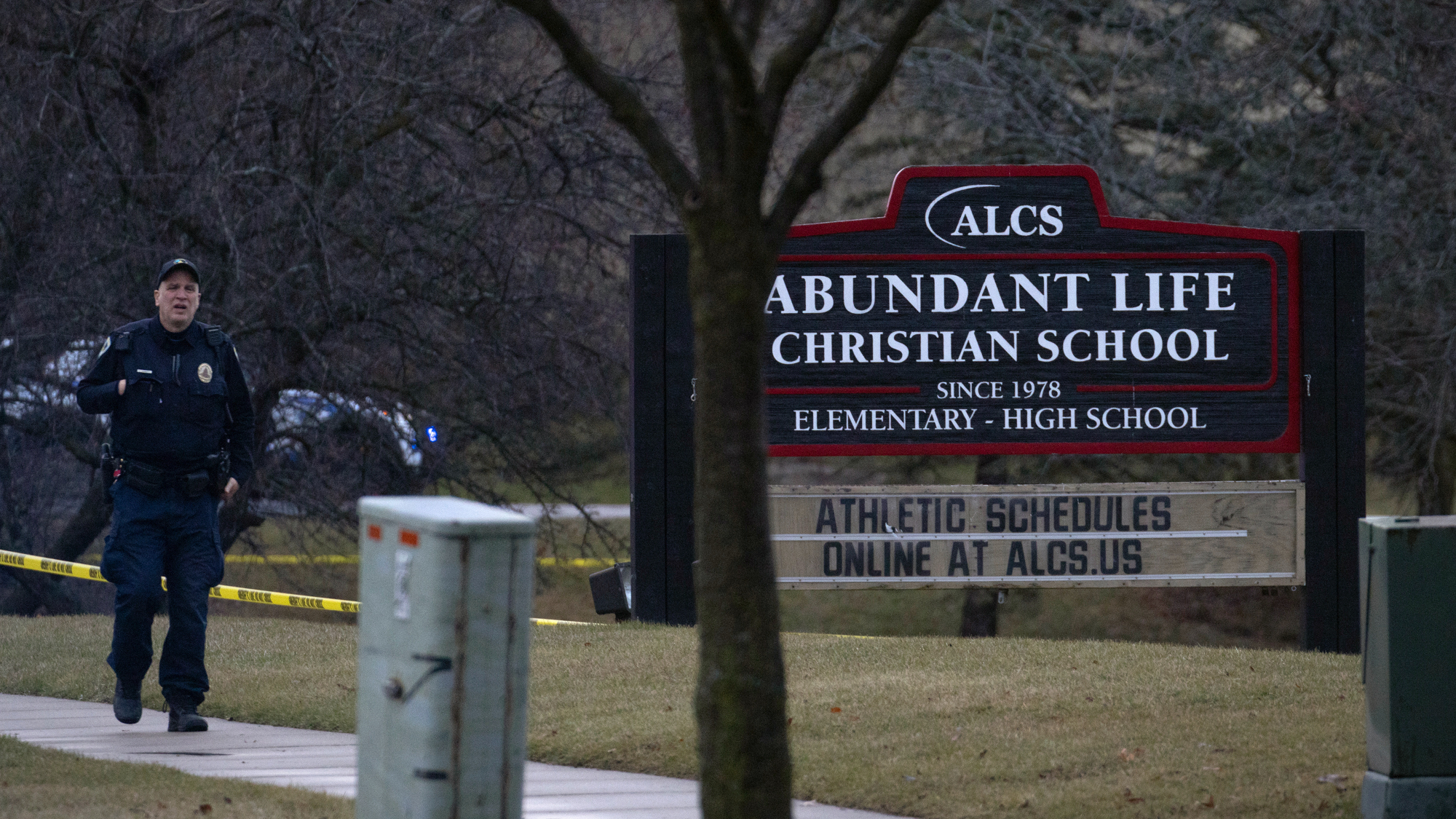 Teenage girl kills 2 in Wisconsin school shooting
Teenage girl kills 2 in Wisconsin school shootingSpeed Read 15-year-old Natalie Rupnow fatally shot a teacher and student at Abundant Life Christian School
-
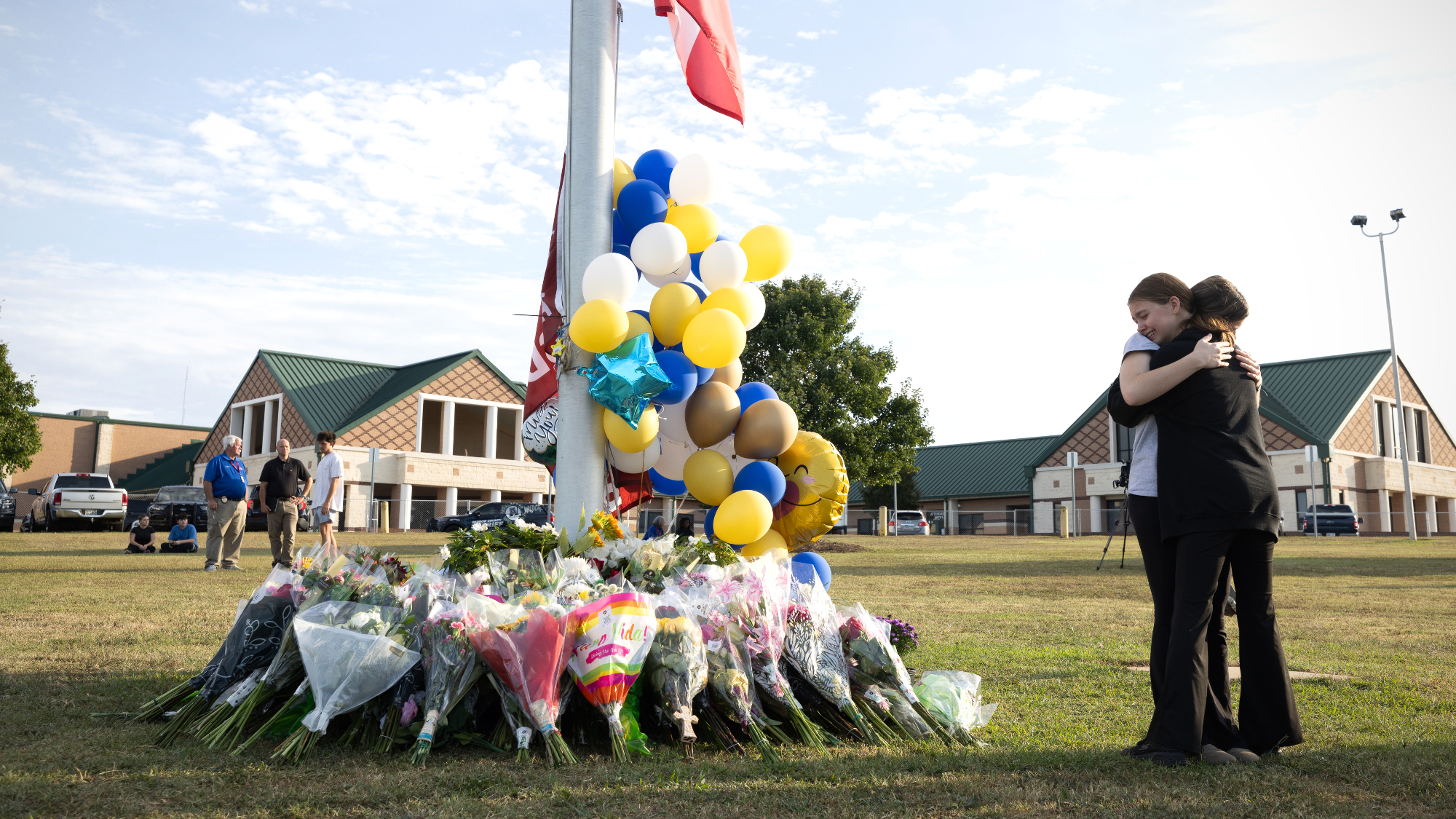 Father of alleged Georgia school shooter arrested
Father of alleged Georgia school shooter arrestedSpeed Read The 14-year-old's father was arrested in connection with the deaths of two teachers and two students
-
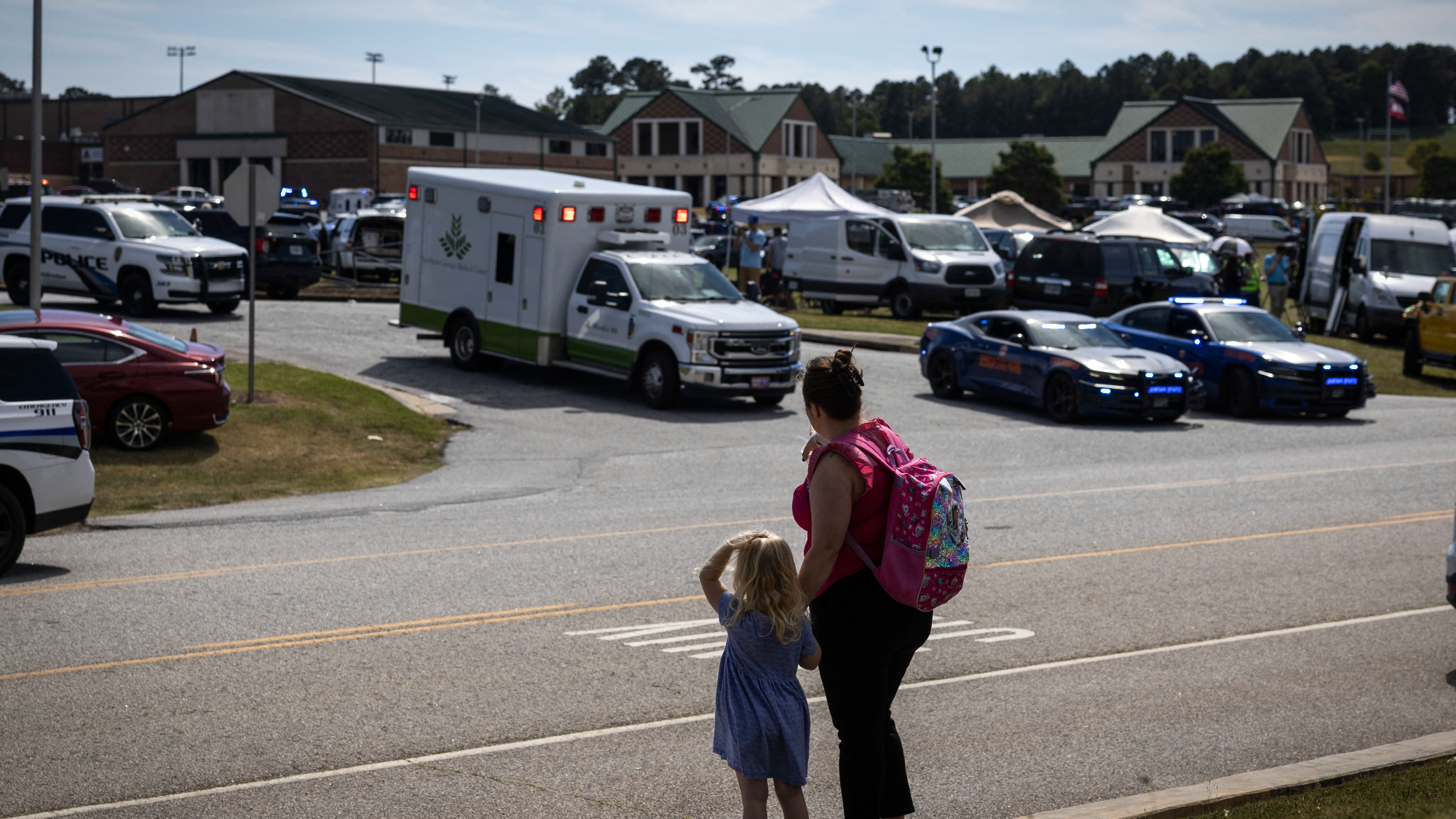 Teen kills 4 in Georgia high school shooting
Teen kills 4 in Georgia high school shootingSpeed Read A student shot and killed two classmates and two teachers at Apalachee High School
-
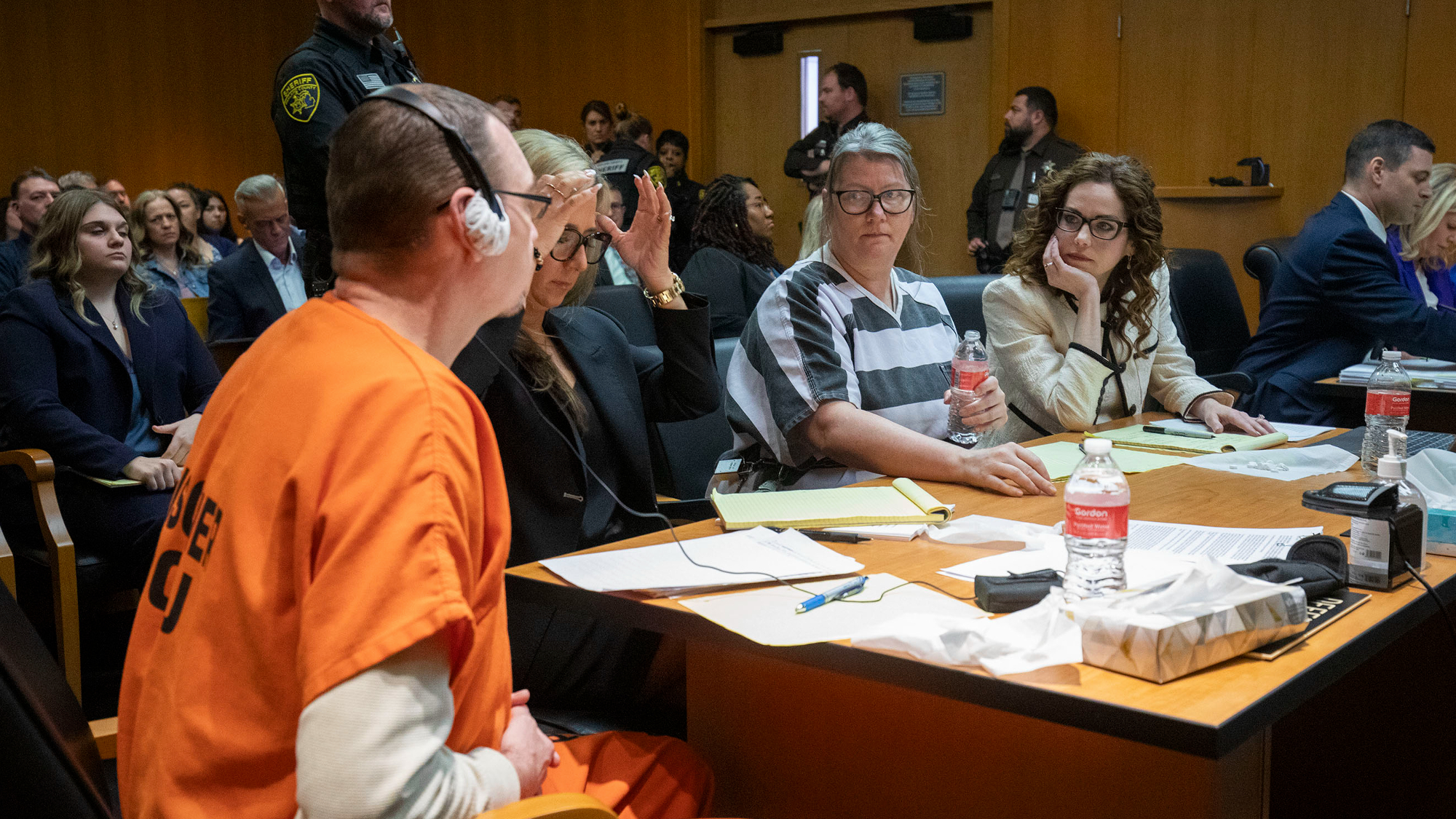 Parents of school shooter sentenced to 10-15 years
Parents of school shooter sentenced to 10-15 yearsSpeed Read Jennifer and James Crumbley are the first parents to be convicted in a US mass shooting
-
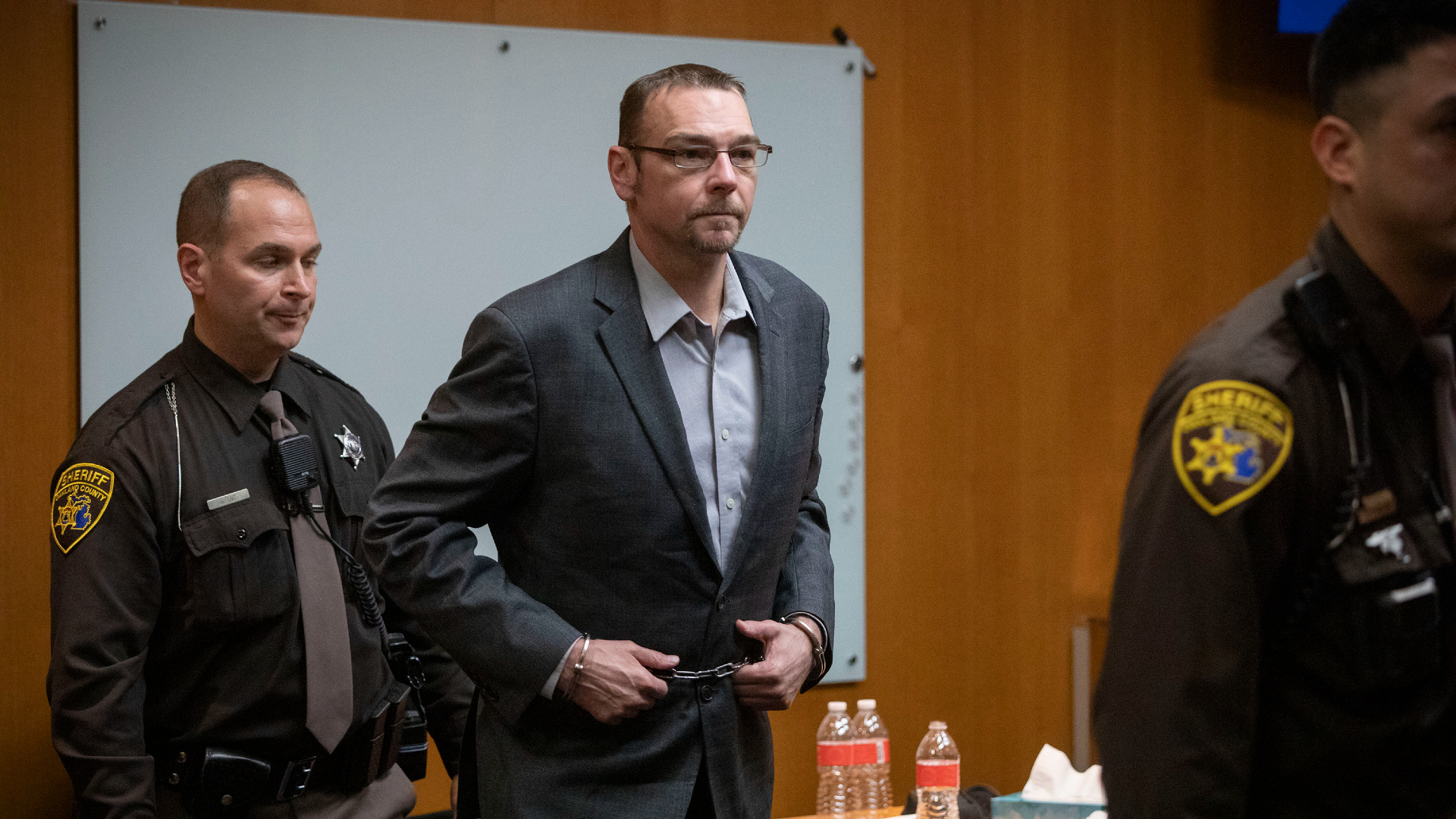 Michigan shooter's dad guilty of manslaughter
Michigan shooter's dad guilty of manslaughterspeed read James Crumbley failed to prevent his son from killing four students at Oxford High School in 2021
